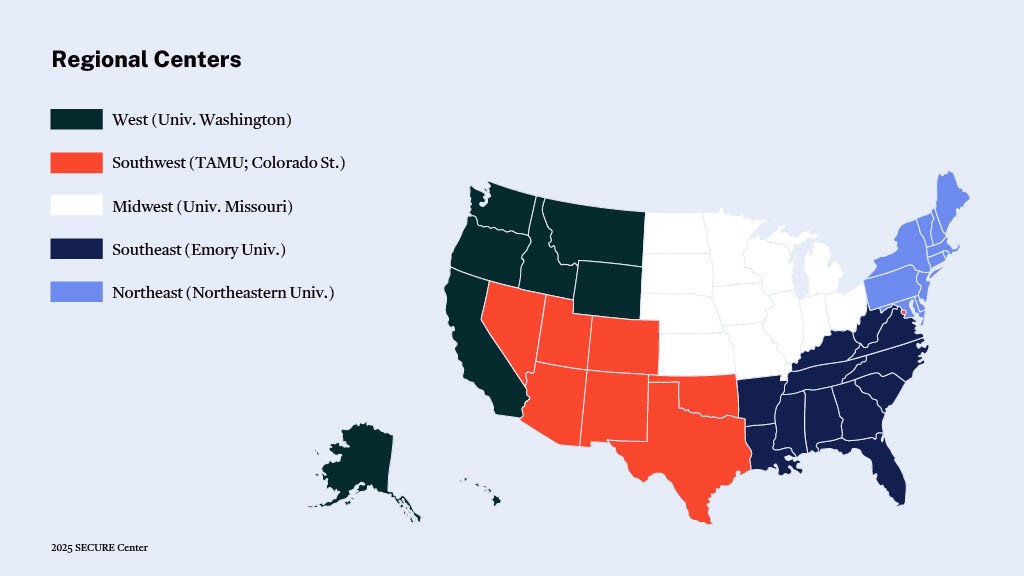
Six institutions of higher education will lead five regional centers:
- SECURE Northeast – Northeastern University
- SECURE Southeast – Emory University
- SECURE Midwest – University of Missouri
- SECURE Southwest – Texas A&M University and Colorado State University
- SECURE West – University of Washington
Each NSF SECURE Regional Center will establish and operate a “co-creation hub” and facilitate a co-creation process under the expert guidance of the National Center. This approach considers the needs and perspectives of relevant organizations that exist in vastly different geographic, administrative, and socioeconomic contexts while simultaneously leveraging the design and development capabilities of the lead institution. Additionally, this structure elevates regional concerns to a national level where organizations may discover that their challenges are similar in unexpected ways to those in other parts of the country, paving the way for solutions that might not otherwise be conceived by organizations working in isolation.
In addition to the five Regional Centers, the National NSF SECURE Center will collaborate with nine additional institutions of higher education (IHEs) & three private sector organizations.
Mississippi State University, the University of Michigan, and Stanford’s Hoover Institution will provide critical subject matter expertise on sensitive research, threat types, geopolitical analysis, and international cooperation.
The College of Charleston will lead efforts to include emerging and minority-serving institutions (ERIs & MSIs) in SECURE’s activities; the University of Michigan will ensure that SECURE’s services balance the need for collaboration with the need for protection. Impulsion Consulting, Insight Global, and MindCette will provide additional expertise to the Center as it undertakes a powerful, proven, participatory design process to co-create the SECURE Shared Virtual Environment (SVE) and its suite of offerings.